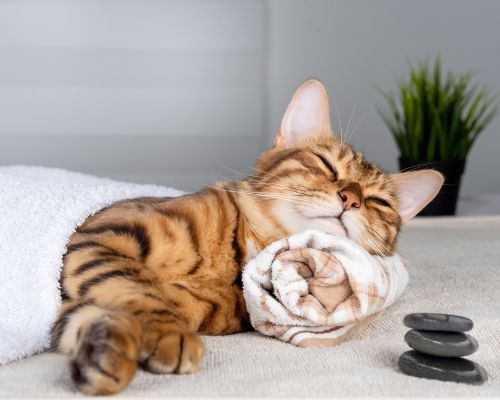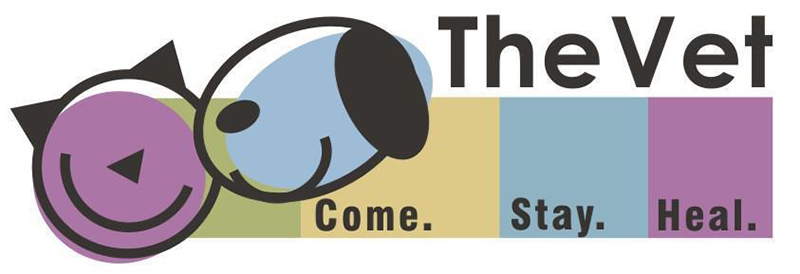Pet Wellness Services
At The Vet, our staff is committed to providing comprehensive, personalized medical care for your pet so you can enjoy a long and happy life together.
Pet Wellness Services in Richardson, TX
Pet Wellness Services
The basis of a healthcare plan begins with regular wellness examinations that include thorough screenings for common diseases and ailments that could affect your pet’s overall health.
Preventative Medicine is the Best Medicine
No one wants to see their pet sick. The best way to ensure your pet is well and lives a long life is to promote a healthy lifestyle while continuing to be proactive in his or her preventative medicine. The veterinary team at The Vet believes prevention is a positive contribution to your pet’s long-term health.

Preventive care also minimizes the lifetime cost of veterinary expenses. We strongly encourage annual wellness examinations recommended vaccinations, and can provide medication to prevent disease.
Wellness examinations consist of:
- Checking body weight
- Determining body conditions (i.e., chubby, skinny, or just right)
- Examining skin, coats, claws and nail beds
- Palpating of the thyroid, peripheral lymph nodes, and abdomen
- Assessing hydration, joints, and anal glands
- Evaluating the neurologic system
- Observing overall behavior
Good communication Leads to Good Health
When you don’t feel well, you visit the doctor and trust that they will listen and provide reliable information and medical advice. The same goes for your pet. At The Vet, we take the time to listen to you and examine your pet thoroughly. Through health risk assessments, we will clearly understand your pet’s overall health status and recommend the best health maintenance or treatment program. It is crucial we hear from you about how your pet is doing so we may continuously adjust and optimize your companion’s health care plan.
Puppy and Kitten Care
Knowing how to properly care for a new pet will help reduce stress or concerns from adding a member to your family. The Vet shares your joy at welcoming this new family member into your life and is ready to support you with exceptional pet care and guidance.
The first year of care for your new little ball of fur is the most important. Like human infants, puppies and kittens require special attention to grow and develop well.
Through our partnership, we will create a custom health plan so your new companion receives the vaccinations behavioral, and nutritional recommendations required to get the best start in life. We’ll also discuss ways to best care for your pet between visits to the veterinary hospital.
Your pet’s first year of care will include:
- Physical Examinations: Your pet’s lifetime of wellness starts with their first comprehensive physical exam. Most puppies and kittens should have three to four exams between the ages of 8-16 weeks. These visits are important because they provide our veterinarians with an opportunity to administer vaccines and assess your pet’s overall health.
- Vaccinations: Due to their developing immune systems, puppies and kittens must receive a series of properly staged vaccines. Because every pet is unique, we tailor our vaccination recommendations based on their lifestyle and according to the suggested medical guidelines.
- Diagnostic Testing: All pets should have at least two negative fecal examinations. Additionally, kittens will need to be tested for FELV/FIV.
- Additional Recommendations: Your veterinarian will also discuss and recommend other services, such as spaying, neutering, and microchipping.
Senior Pet Care
With thousands of older pets waiting in shelters for their forever homes, we strongly encourage adopting a senior animal who may otherwise be overlooked by adopters for younger pets.
Older pets make wonderful companions, and thanks to advances in veterinary medicine, they are living longer than ever; however, they have unique medical needs.
The veterinary team at The Vet will work with you to develop a health care plan that ensures your senior pet is safe and happy throughout his or her golden years. Our pets age faster than people and are considered to be seniors as early as eight years old. Preventative care is the key to keeping older pets healthy. Symptoms of disease or a chronic condition may not be readily apparent. In some cases, conditions that look like the usual signs of old age could be signs of a more serious problem, such as arthritis, periodontal disease, kidney failure, or cancer. We recommend all senior pets undergo at least two physical examinations each year, though more frequent examinations may be recommended based on each patient’s overall health. We also perform tests during an examination to detect the signs of heart disease, infection, diabetes, and other health problems. If your pet is experiencing any changes in behavior, we urge you to bring him or her in for a check-up. We can ensure you and your faithful companion enjoy many more years together. Remember, you are the most important ally in keeping your senior pet healthy!
Identifying problems before they develop is essential to offering your pet optimal care and a long, healthy life. Since an ounce of prevention is worth a pound of cure, the veterinarians and staff at The Vet are strong advocates of preventive care.
Ensuring your pet receives recommended vaccines is an excellent way to protect them in the long road. Illnesses such as parvovirus, distemper, feline leukemia virus, feline immunodeficiency virus, upper respiratory viruses, ringworm, heartworm, and rabies can debilitate your pet and shorten their life. While some vaccines prevent common infectious diseases, others protect against dangers in a pet’s daily lifestyle. At The Vet, we follow the most up-to-date vaccine recommendations and will develop a plan for vaccinations based on YOUR pet’s specific needs. We can use only non-adjuvanted vaccines in cats, which is considered best practice for feline patients.
A note about vaccine titers: when our pets are younger, vaccinations are vitally important. But, as our pet grows older and its immune system becomes more competent, vaccinations can be less critical. To determine which pets need vaccinations, we offer vaccination tittering. This allows us to measure your pet’s immunity to certain diseases. If the titers are low, the vaccinations are indicated. If the titers are within protective range, then we don’t vaccinate. This allows us to determine your pet’s individual need for vaccinations. Please feel free to call (972) 675-2510 to discuss vaccine titers for your pet.
Parasites can be real pests. Both external (fleas, ticks) and internal (heartworm, hookworm, roundworm) parasites can cause problems for your pet and your family. Prevention is the best approach to eliminating these pests. At The Vet, we carry products to protect against fleas, ticks, heartworms, and other parasites like intestinal roundworms, tapeworms, and ear and skin mites.
Heartworm Disease
Heartworm disease is a serious, life-threatening disease transmitted by mosquitoes. It is commonly found in dogs, but cats can get heartworms, too!
Clinical symptoms of heartworm disease develop slowly and can be subtle or dramatic. Symptoms may include asthma-like attacks, coughing, lack of appetite, periodic vomiting, or weight loss. Difficulty walking, fluid accumulation in the abdomen, fainting, or seizures are rare symptoms. Unfortunately, in cats, all too often, the first symptom of heartworm disease is a collapse.
Heartworm disease prevention is simple and effective.
Pets can be protected by applying a drop of heartworm prevention liquid to the skin once a month or by eating a palatable heartworm chew monthly.
If you would like to have your pet tested for heartworm disease or if you would like additional information on how best to protect your pet from this dangerous parasite, please call The Vet today for an appointment.

